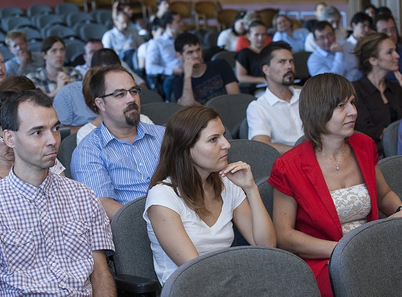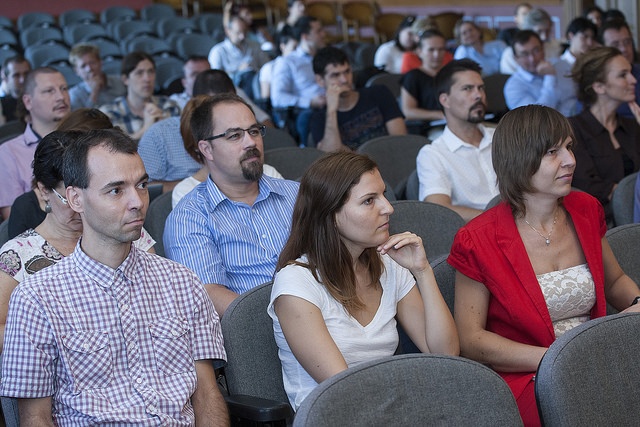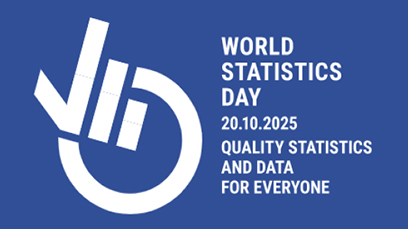
The most outstanding researchers are backed by several domestic research funding schemes, which greatly contributed to the fact that Hungary is one of the most successful countries among the 13 new Member States in securing funding both from the European Research Council (ERC) and the Marie Skłodowska-Curie actions.
The career forum, which involved an information day and consultations, aimed to raise participants’ awareness of EU research funding opportunities and Hungarian funding schemes to foster participation in these international calls, through presentations delivered by HAS researchers, NRDI Office experts and researchers who had been already granted.
Every year applicants face fierce competition when running for direct-access ERC funds. Despite this, Hungary has been for years one of the top successful countries among the new Member States that joined the EU in or after 2004, both in terms of the number of funded projects and the awarded amounts. “In the last ten years 62 Hungarian beneficiaries have garnered a total of EUR 82 million in the intense pan-European competition for ERC funds, which accounts for around 40% of all funding won by the EU13 countries,” József Pálinkás, President of the NRDI Office said at the event. Although we are no serious competition for the UK, Germany and France, whose researchers top the league, this result still places us in the middle of the pack at EU level, and clearly sets an example for our regional peers.
Similar is the situation in the case of the Marie Skłodowska-Curie Actions (MSCA) which fosters the international mobility of researchers to help them gain experience in various stages of their careers. In the framework of this 20-year-old EU initiative a total of EUR 61 million was disbursed to altogether 461 Hungarian beneficiaries since 2002, that is, in the period of the FP6, FP7 and the Horizon 2020 programme. These institutional grants and individual fellowships clearly boost the chances of funded researchers to successfully participate even in an ERC call.
Several domestic schemes serve to provide funding to applicants for developing promising future project proposals to the international calls. “It is very important to provide domestic funding to ERC applicants as every year plenty of project proposals receive positive assessment from the ERC assessors but most of them are not selected for funding due to limited funds. We help the best applicants to get prepared for future ERC calls under predictable circumstances, so they are relieved from the pressure to interrupt their work or continue their scientific work abroad’ József Pálinkás said.
The funding schemes of the NRDI Office provide support to these applicants and – through fostering mobility – their preparation on the basis of international exchange of experience:
- The NRDI Office is expected to announce its HUF 450 million call again in 2017 to provide funding to applicants whose project proposals performed well against the ERC quality criteria, made it to the second round but were ultimately not selected for funding due to lack of funds. Beneficiaries of this call include among others a gene researcher, a biologist, a mathematician and even a linguist both in the first and the second round.
- ERC mobility programme (ERC_16_MOBIL): The HUF 200 million call of the NRDI Fund gives researchers preparing for the ERC competition the opportunity to do research and exchange information while spending three to four months with a research group led by an ERC grantee.
The NRDI Office fosters development and strengthening of competitive domestic research centres by announcing increased-budget calls for discovery research proposals and calls for thematic project proposals initiated by young researchers, and by providing targeted funding to research groups having references in leading international scientific journals. In addition, it also initiated a research excellence programme called “Cutting Edge” which, according to the Government Decision published in April 2017, will provide funding to 10 to 12 world-class domestic researchers ranked in the top of their field of science, amounting to HUF 50 to 60 million (EUR 165,000 to 195,000) per year.
The key to high success rates is not simply the quality of domestic researchers and their research projects, József Pálinkás emphasised in his speech. The network of National Contact Points (NCPs) coordinated by the NRDI Office is also an important pillar in the system: its members provide expertise to potential applicants (research institutions, universities, businesses, non-profit institutions and individual researchers) in relation to the specific H2020 sub-programmes. The NRDI Office dedicates a special NCP to MSCA calls, while the HAS provides NCP support for ERC calls.

1051 Budapest, Széchenyi István tér 1.
Established in 2010 by the United Nations Statistical Commission, World Statistics Day is celebrated every five years by the global statistical community to highlight the societal and scientific importance of official statistics, and the value of evidence-based decision-making.
This is an information session for the MSCA Choose Europe for Science 2025 call for proposals which opens on 1 October 2025.








